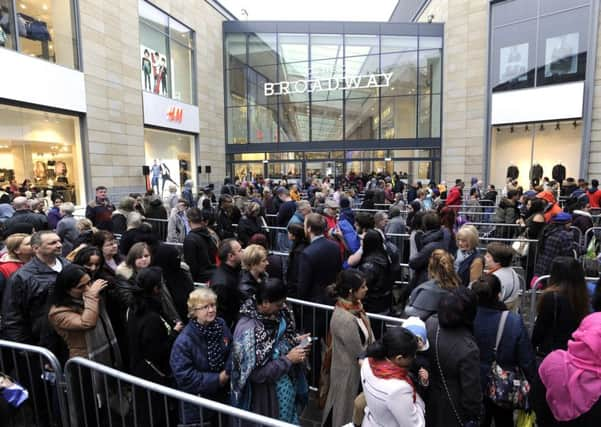Margaret Eaton: North must find voice to push growth


People are generally surprised to hear that Bradford is the fifth-largest metropolitan district in the country and that two-thirds of its area is rural.
It has a rapidly growing population of 531,200 and is the youngest city in the UK. Some 23 per cent of the population are aged under 16, compared with 18.8 per cent nationally.
Advertisement
Hide AdAdvertisement
Hide AdMost Governments, of all political colours, have tended to be London-centric in their thinking. The result of the EU referendum in many parts of the North was certainly in part a reaction to what many regard as the opinions of a Westminster elite.
This divide was cemented even more by the sneering tone of some commentators implying that voters in the North lacked the intelligence to vote the right way.
The previous Chancellor of the Exchequer (George Osborne) was wise enough to realise that the North has much to offer, much that could be developed, and that the UK could be economically stronger if the potential of the North could be developed.
The Northern Powerhouse Strategy in the Autumn Statement showed that the present Government is taking seriously their approach to addressing the key barriers to productivity in the North.
Advertisement
Hide AdAdvertisement
Hide AdThe IPPR’s State of the North report helpfully identifies three key issues to build business confidence and economic resilience: securing a northern voice in Brexit; clear principles for a place-based industrial strategy; and a focus on local economic resilience alongside growth and devolution.
Yorkshire currently has no agreed devolution deal in place, so the lack of a unified voice across the North is potentially damaging, particularly to the Leeds city region and to Bradford.
It is important for the North to find its own voice and promote itself and its constituent cities, towns and communities on the world stage.
The IPPR view that an effective national industrial strategy should allow for regional differentiation is particularly relevant to the Leeds city region and to Bradford in particular as they are diverse and the city region does not comprise a single city or solely an urban environment. Creating more jobs and getting people into good jobs is key and inclusive growth is central to Leeds city region’s economic strategy.
Advertisement
Hide AdAdvertisement
Hide AdAs a district, Bradford is committed to creating a high-value, high-skilled economy, driven by innovative and productive business that delivers growth, jobs and opportunity for all.
Devolution and differentiation offer opportunities to develop local solutions for harder-to-reach unemployed and underemployed people.
An example of this is the project Get Bradford Working which addresses the gap in nationally commissioned approaches.
Such local initiatives would benefit from more support, as national solutions tend to lead to a focus on people who need help the least. Locally designed and implemented services can respond better to local business need.
Advertisement
Hide AdAdvertisement
Hide AdIPPR’s call for greater public investment in infrastructure and research and development is an important message.
The North receives less government R&D spend than London and the South East. Public resources could deliver better economic and social outcomes if targeted in areas with greater opportunities for market growth.
Key for Bradford is investment in transport infrastructure, including a high-speed Northern Powerhouse rail stop for the city and other trans-Pennine improvements, including electrification of the Calder Valley line. Delivering inclusive growth across the North will require significant long-term investment in social capital as well as physical infrastructure and the need to see social infrastructure as driving the well-being agenda.
Any industrial strategy for the North must recognise the need for local solutions and genuine devolution, including fiscal powers, which are key to the delivery of those local solutions. Long-term resilience is dependent on physical and social investment to deliver truly inclusive growth.
Advertisement
Hide AdAdvertisement
Hide AdMargaret Eaton is a Tory peer who spoke in a House of Lords debate on the North. This is an edited version. She’s vice president of the Local Government Association and a former leader of Bradford Council.